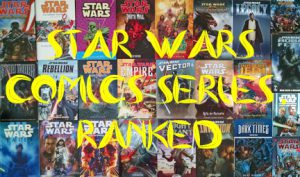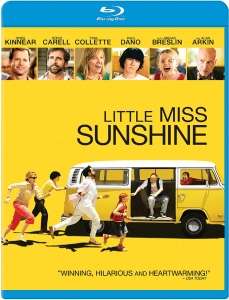Michael Arndt will join a select group when he writes “Star Wars: Episode VII,” slated for a 2015 release. Although there are four previous “Star Wars” movie writers among the six episodes, only two of them are recognized as having their work truly show up on screen — George Lucas, who wrote “A New Hope” and the prequels, and Lawrence Kasdan, who wrote the screenplays for “The Empire Strikes Back” and “Return of the Jedi” based on Lucas’ stories.
Sci-fi/fantasy novelist Leigh Brackett has an honorary co-writing credit on “Empire,” but the work she did before her death didn’t make it into the final script. And Jonathan Hales co-wrote “Attack of the Clones,” reportedly for a dialogue punch-up, but no one seems to know exactly what parts of the movie reflect his contributions. I’ve never seen him interviewed about his “Clones” work, making me assume that he wasn’t thrilled with the collaboration but is too polite to talk about it.
With Arndt announced as the sequel trilogy’s first screenwriter, I decided to re-watch “Little Miss Sunshine,” his first writing credit, which also happens to be one of the best films of 2006. Although at first glance it’s nothing like a “Star Wars” movie, Arndt — who also earned raves for “Toy Story 3” (2010) — shows a knack for creating lovable characters and illuminating broad themes, hitting us with doses of high danger and high comedy over the course of a road adventure. So, oddly enough, “Little Miss Sunshine” actually features many of the traits one looks for in a “Star Wars” scribe. Throw in the fact that he’s a “Star Wars” fan, and Arndt does indeed seem like a fine hire.
The biggest achievement of “Little Miss Sunshine” (directed by Jonathan Dayton and Valerie Faris) is that the Hoover family is bluntly and broadly dysfunctional, yet at the same time heartbreakingly human, and therefore lovable. Greg Kinnear, as the title character’s dad, is an entrepreneur pitching a nine-step program about how to be a winner, yet he has a modest Albequerque home, his family eats takeout chicken nightly, his agent doesn’t return his calls and at one point he desperately rides a mini-bike “Dumb and Dumber”-style through the West in search of his agent.
Steve Carell, the gay uncle and a college lit professor, tries to kill himself after a student doesn’t return his affections. Paul Dano, the brother, has taken a vow of silence and reads Nietzsche constantly; he scribbles on his notepad “I hate everyone.” Alan Arkin, the grandpa, blasts the nightly chicken dinners, has issues with gay people, loves pornography and doesn’t care about his waning health. Toni Collettte plays the mom who struggles to hold this clan together; you can see the tiredness on her face. (It didn’t strike me while watching the film, but I now have to admit that she seems under-developed compared to the other five characters.)

Abigail Breslin is Olive Hoover, the 7-year-old girl who is aiming to win the Little Miss Sunshine beauty pageant of the title. She’s just your basic chubby little girl, not too innocent, not too worldly, but completely adorable. Arndt doesn’t hit viewers over the head with this, but I think the Hoover family’s misfits are held together by love — however, it’s not a strong bond of love; there is indeed a lot of loathing mixed in there. The thing is that everyone rallies around their love of Olive; take her out of the mix and the whole road trip to the Los Angeles pageant completely falls apart. (The most heart-tugging scene in the movie might be when the well-meaning Kinnear warns Olive against getting fat from ice cream right after she orders ice cream. Then everyone else digs into the ice cream when it arrives, thus giving Olive permission to be a kid again.)
At every point where Arndt inserts a road-trip monkey wrench — the clutch on the old VW van stops working, apparently leaving the family stranded well short of California — he turns it into a great bit of indie-movie humor. The mechanic tells them that those old vans don’t need a working clutch to go from third to fourth gear, so as long as you park on a downward slope and get some momentum going, it doesn’t need a clutch. (Now that I type that, I wonder: What if they got stuck at a stoplight? But whatever …) As such, we are treated to numerous visually amusing scenes of the family giving the van a push, then jumping in the side door once it’s in gear.
The way Arndt tackles an even bigger tragedy — the grandpa’s sudden death — is an even more deft tonal mix. We get grieving scenes (including the silent brother touchingly writing to Olive: “Go hug mom”), but then the dark corpse-related humor kicks in, almost to “National Lampoon’s Vacation” extremes, and yet the film never goes off track. Finally, Arndt delivers that deliciously weird and brilliant finale, where Kinnear squirms along with the audience while viewing his first beauty pageant for 7-year-olds. Characters such as the emcee who enjoys the more suggestive aspects of the kids’ dance routines and the biker dude who attends the pageants purely as a fan, not as a relative of a contestant, are daring.
This is a movie where Kinnear earlier told his family to “act like everything’s normal” when he got pulled over by a highway patrolman; this is a family where everyone innately understands they are not “normal.” And yet the pageant scene — which ends with the cathartic dance number where all the Hoovers groove to Rick James’ “Super Freak” so Olive won’t feel judged by the prim-and-proper audience — clearly illustrate that it’s the world at large that is truly bizarre. And against that backdrop, the Hoovers’ problems are revealed to be much more normal than we might’ve previously thought.
Like a good “Star Wars” film, “Little Miss Sunshine” shares unrelenting forward momentum, the ability to let the audience know the characters through the action and dialogue rather than clunky exposition, a bit of genuine fear and danger, a bit of genuine humor that provides a relief from that, and finally, a wiz-bang conclusion. Of course, there are still the casting and directing questions to be answered (by the way, I wouldn’t object to Breslin as Allana Solo), and every good movie is a case of all those elements working together seamlessly. But after re-watching “Little Miss Sunshine,” I feel confident that “Star Wars: Episode VII” is in good hands at the script-writing stage.

